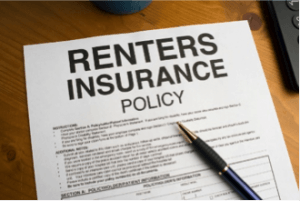You should be aware of what type of coverage you have purchased. There are two basic types of renter’s insurance. The first one is actual cash value. Actual cash value insurance will pay the cost of replacing your items minus the depreciated value. Replacement cost coverage on the other hand reimburses the full amount that you paid for the items. Replacement cost coverage policies are generally a little bit more expensive but they usually pay out more in case of an incident. You can usually choose the deductible that you want for your policy. Most renter’s insurance policies come with a $250 deductible. You can save money by choosing a $500 deductible and even more money if you choose a $1000 deductible but be aware that you will have to pay more out of pocket in the event of an incident.
If you’re looking for more affordable coverage there are other discounts that you can get through your insurance company besides choosing a higher deductible. Most insurance companies will reduce your premiums if you have an alarm system, fire extinguishers, sprinkler systems, and dead bolts on your exterior doors. Some insurance companies also offer multiple policy discounts. If you have your auto insurance or any other policies through the same company, it may be wise to double check for these discounts. One other way you can usually save money is by paying for your entire 12 month policy up front instead of spreading it out over 12 months. You may also want to evaluate your personal possessions. If you have more coverage than you need, you may also be paying more than you need. Don’t cut your coverage short but it may be wise to avoid paying double the coverage that you need.
Okay, now that you have renter’s insurance, let’s go over what to do next. These tips will help you make sure you have everything ready as well as expedite your claim in case of an accident. Start by taking an inventory of everything in your home. Make an itemized list of everything you own with price estimates and serial numbers. If you have receipts for big items save them with your inventory. This inventory will help insure that you choose the right coverage for your home. Make sure to store a second copy of this inventory somewhere outside the home; such as in a safe deposit box or at a friend’s house.
You should always read through contracts before signing them. However, if you didn’t before you purchased your policy, you should definitely read through the entire policy to make sure that you understand the process and limitations of your policy. It’s better to know everything now than try to read through it in the case of an emergency. If you have any questions you should ask your insurance agent to explain the policy for you.




